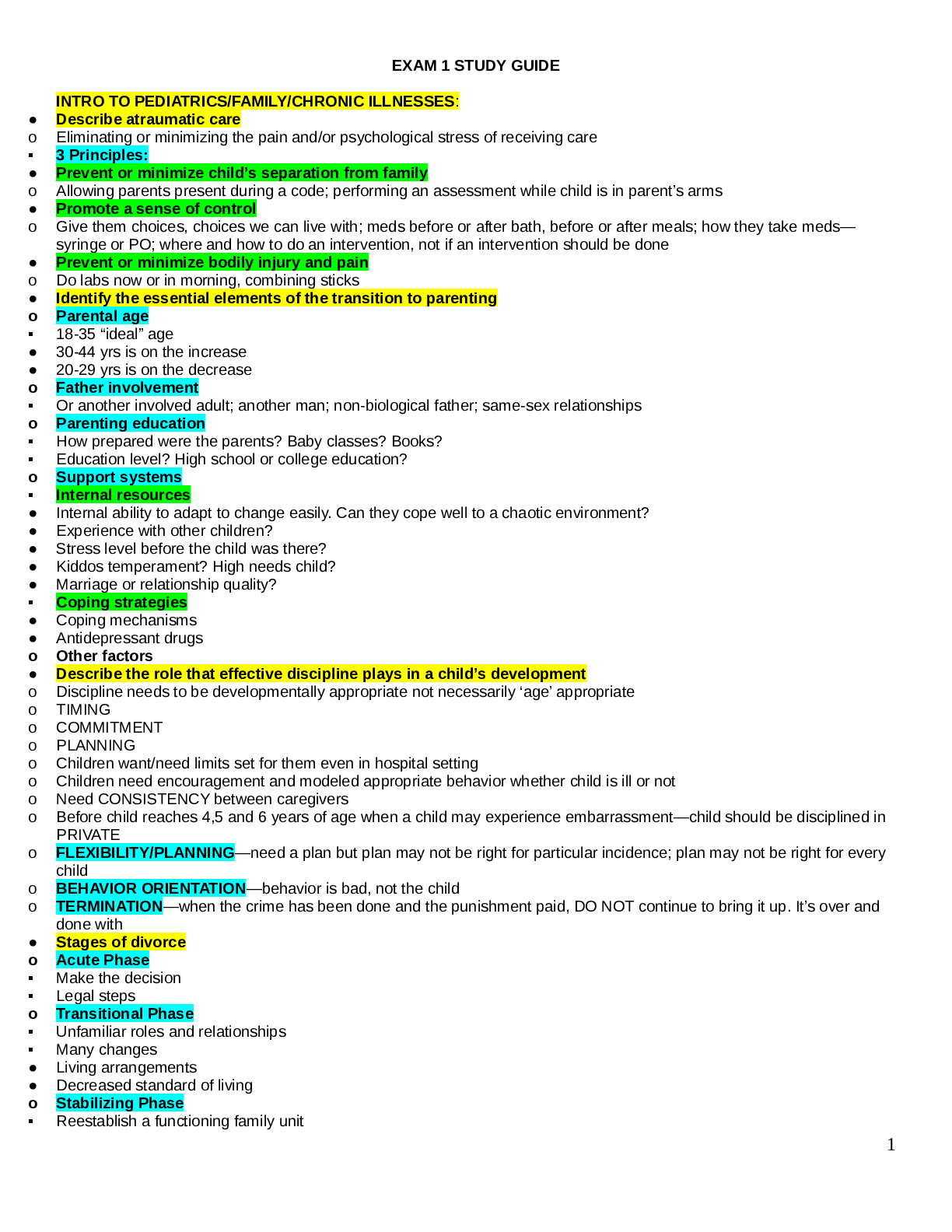EXAM 1 STUDY GUIDE INTRO TO PEDIATRICS/FAMILY/CHRONIC ILLNESSES
Course
Subject
Chemistry
Category
Study Guide
Pages
33
Uploaded By
ATIPROS
Preview 5 out of 33 Pages
.png)

Download all 33 pages for $ 13.50
Reviews (0)
$13.50
